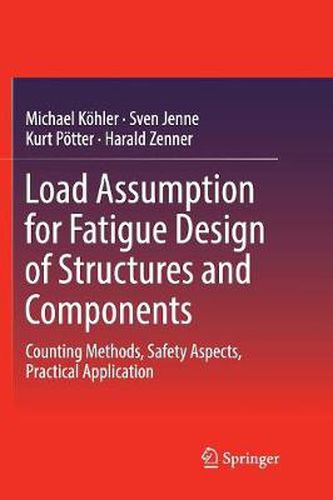Readings Newsletter
Become a Readings Member to make your shopping experience even easier.
Sign in or sign up for free!
You’re not far away from qualifying for FREE standard shipping within Australia
You’ve qualified for FREE standard shipping within Australia
The cart is loading…






This title is printed to order. This book may have been self-published. If so, we cannot guarantee the quality of the content. In the main most books will have gone through the editing process however some may not. We therefore suggest that you be aware of this before ordering this book. If in doubt check either the author or publisher’s details as we are unable to accept any returns unless they are faulty. Please contact us if you have any questions.
Understanding the fatigue behaviour of structural components under variable load amplitude is an essential prerequisite for safe and reliable light-weight design.
For designing and dimensioning, the expected stress (load) is compared with the capacity to withstand loads (fatigue strength). In this process, the safety necessary for each particular application must be ensured. A prerequisite for ensuring the required fatigue strength is a reliable load assumption.
The authors describe the transformation of the stress- and load-time functions which have been measured under operational conditions to spectra or matrices with the application of counting methods. The aspects which must be considered for ensuring a reliable load assumption for designing and dimensioning are discussed in detail. Furthermore, the theoretical background for estimating the fatigue life of structural components is explained, and the procedures are discussed for numerous applications in practice. One of the prime intentions of the authors is to provide recommendations which can be implemented in practical applications.
$9.00 standard shipping within Australia
FREE standard shipping within Australia for orders over $100.00
Express & International shipping calculated at checkout
This title is printed to order. This book may have been self-published. If so, we cannot guarantee the quality of the content. In the main most books will have gone through the editing process however some may not. We therefore suggest that you be aware of this before ordering this book. If in doubt check either the author or publisher’s details as we are unable to accept any returns unless they are faulty. Please contact us if you have any questions.
Understanding the fatigue behaviour of structural components under variable load amplitude is an essential prerequisite for safe and reliable light-weight design.
For designing and dimensioning, the expected stress (load) is compared with the capacity to withstand loads (fatigue strength). In this process, the safety necessary for each particular application must be ensured. A prerequisite for ensuring the required fatigue strength is a reliable load assumption.
The authors describe the transformation of the stress- and load-time functions which have been measured under operational conditions to spectra or matrices with the application of counting methods. The aspects which must be considered for ensuring a reliable load assumption for designing and dimensioning are discussed in detail. Furthermore, the theoretical background for estimating the fatigue life of structural components is explained, and the procedures are discussed for numerous applications in practice. One of the prime intentions of the authors is to provide recommendations which can be implemented in practical applications.